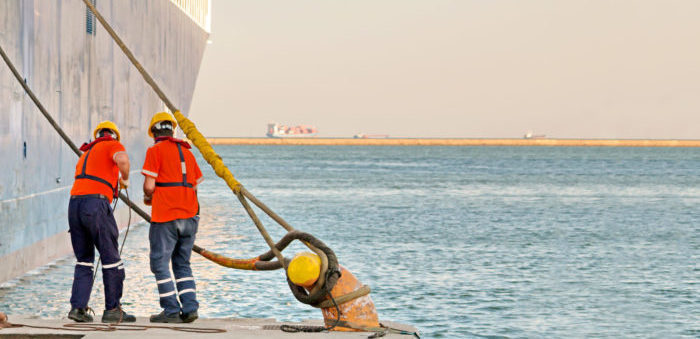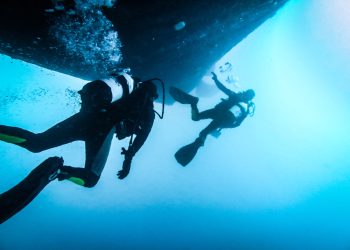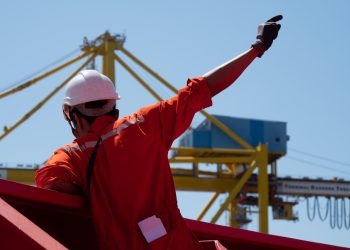Human rights at sea gains significant attention of the maritime community. Due to its diversified identity, shipping constitutes a friendly field for human rights abuses, with human trafficking, illegal migration, slavery and abuse in fishing sector and even the unsafe working conditions in many Southeast Asian ship recycling facilities being among the key areas of concern.
On 10 December 2018, the world celebrates the 70th anniversary of the Universal Declaration of Human Rights (UDHR). Businesses already have a framework to adopt a principles-based approach that places human right at the center of their strategy. Namely, in the form of the 2030 Agenda for Sustainable Development in the context of UN SGDs, business can ensure respect for human rights throughout their operations. Yet despite important progress, there is still a long way to go before respect for human rights is truly universal, UN notes.
Proclaimed by the UN General Assembly in Paris on 10 December 1948 on the aftermath of the Second World War atrocity, the Universal Declaration of Human Rights (UDHR) set out, for the first time, fundamental human rights to be universally protected, marking a milestone in human protection. Along with the heavy history of humanity, the globalization and communication of ideas through social media has brought an even greater focus and sensitization about human rights.
#5 common human rights abuses in maritime
Over the recent years, a new aspect of human rights has risen in maritime industry related to the so-called ‘migrant crisis’ and the search and rescue operations of migrants and refugees at sea conducted by private merchant vessels. This has led the IMO, the ICS and the UNHCR to draft guidance on rescue at sea for migrants and refugees.
So why shipping business must show an increased interest in human rights at sea? The answer should have been granted. Because seafarers are humans. However, the continuation of reports regarding rights abuses in the maritime sector creates the need for further discussion, on 10 December, and more action, every day.
Seafarers live a great part of their life inside their working environment – the ship. If the human rights are not effectively protected, there is the danger of excessive exploitation, even slavery. The ship is a micrograph of society, just with a more limited space.
Human rights apply at sea equally as they do on land.
-HRAS
Going further, ensuring protection of human rights is key for businesses’ sustainability, therefore their reputation. One way employers reduce costs is by not looking after their employees’ working conditions, which can result in fines and even irreversible reputational damage in brand value. According to Deloitte, a key aspect of human rights risks in maritime is the companies’ reputation and their inability to hide from public criticism if caught ill-prepared. On the contrary, according to HRAS, investing in the protection of human rights guiding principles can help improve reputation, attract investments, while also improving supply chain risk management. From the opposite perspective, businesses can impact with their example the way human rights are confronted.
When companies operate with respect for human rights, they contribute to an enabling environment where people may live with freedom and dignity.
-Maersk – Sustainability Report 2015
How to ensure implementation
According to HRAS, businesses should:
- include human protection in their policies
- include human protection in their framework of reporting
- use management systems to measure levels of internal awareness and commitment to human rights
- establish remediation process for human rights grievances
Additionally, according to HRAS and Bristol University,
- flag states should consider ratifying the core UN human rights treaties, IMO and ILO Conventions.
- specific monitoring mechanisms for ensuring compliance of a flag state with its human rights obligations onboard should be put in place.
- compliance with human rights onboard should also be considered for listing flag states under MoUs.
Did you know?
- In 2011, the UN introduced Guiding Principles in Business and Human Rights, a voluntary guidance on human rights based on three pillars: Protect, Respect, Remedy.
- In 2014, the independent international maritime initiative “Human Rights at Sea” (HRAS) was introduced from the Maritime Practice of 9 Bedford Row International, London, as a human rights on-line information, and lobbying platform, aiming to support human rights integration throughout the maritime domain.
- Human Rights at Sea has partnered with the Business and Human Rights Resource Centre, with the launch of the first of its kind global platform for recording cases of maritime human rights abuses.
- On the occasion of this year’s Day, HRAS published its latest legal research paper on maritime business and human rights examining the legal and practical implications of a legally binding UN Convention on business and human rights and its implications specifically for the maritime sector.
- In mid-2018, the first ‘flag states and human rights’ report was published by HRAS and Bristol University.
- Recently, the US introduced the ‘Human Trafficking and IUU Fishing Act’, adding the Secretary of Commerce (NOAA Fisheries) to the President’s existing Interagency Task Force to Monitor and Combat Trafficking in Persons, in response to the growing prevalence of human trafficking, forced labor, and human rights abuses in the global seafood supply chain.
- In late June, the first detention of a fishing vessel under the provisions of ILO’s Work in Fishing Convention, 2007 (No. 188) took place in South Africa, following complaints by the crew about working conditions. Reports refer that the crew was even beaten onboard.
- HRAS has published a facts sheet to help maritime businesses understand their business and human rights requirements.
- HRAS has has produced a series of freely available educational videos and accompanying infographics on the UN Guiding Principles and their implementation to the maritime environment.
- In celebration of the 70th anniversary of the UDHR, a new UN Global Compact report showcased examples of how businesses around the world are taking action to stand up for human rights.
- As the ‘migrant crisis’ escalated in the Mediterranean in 2014-2016 companies had to divert about 1,000 merchant ships rescuing more than 50.000 people, according to Elizabeth Mavropoulou, Charity Administrator and Programme Manager at HRAS.
Employment in shipping is complicated. It is not always easy to know what kind of working conditions we will encounter, but this does not mean human rights can stay unprotected. Human rights, in their fundamental base, refer to the protection of life. Ensuring the implementation of human rights onboard means safety of people onboard, which means safe navigation, effectiveness, but mostly respect for humans.
There should be no reason why Human Rights in the maritime environment should not be explicitly researched, reported and advocated for the benefit of the international community. This involves the investigation and profiling of Human Rights abuses in support of seafarers, fishers and their families worldwide.
-HRAS.
In this regard, greater transparency and strategies to tackle and eliminate cases of human rights abuse are key to move forward. Seafarers onboard need to have a fair and productive working environment and although the Maritime Labour Convention paved the way, it is not enough. In essence, as noted by Ben Bailey, Mission to Seafarers during a seminar by IMarEST, ‘the term human rights is notably absent from MLC, leaving space for exploitative practices to be carried out by less scrupulous members of the industry’. Thus, more action is needed by industry stakeholders to step forward in ensuring that all people are treated with fairness and dignity.






























































